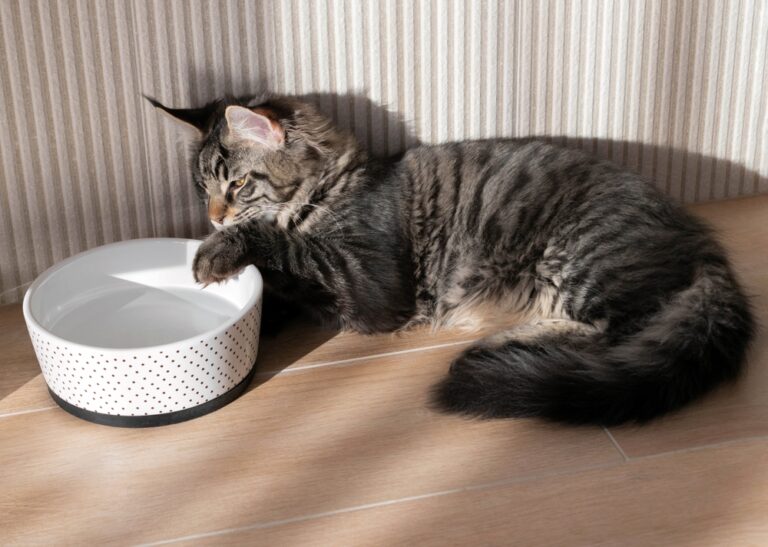
Although your pet can’t use words to tell you how they feel or what they need, their bodies and behaviors communicate a great deal. You may be unable to determine which changes in your pet are cause for alarm and which can be attributed to normal aging or a self-limiting problem. To help you decide when to seek veterinary care for your pet, our Urgent Pet Care Omaha team shares common pet health changes you shouldn’t ignore.
#1: Eating or drinking habit changes in pets
Significant changes in appetite or water intake can signal various health issues, including kidney disease, dental pain, diabetes, thyroid or adrenal disease, or gastrointestinal (GI) problems. Whether your pet exhibits a gradually progressive change or a dramatic overnight difference, let your veterinarian know.
#2: Weight changes in pets
Unexplained weight changes may indicate metabolic or hormonal problems or conditions that result in poor appetite and muscle loss, such as kidney disease or cancer. Weight changes can also be attributed to an inappropriate diet or activity level. Your veterinarian can help you rule out and treat underlying diseases, and find a diet that works for your pet’s needs.
#3: Energy level changes in pets
Persistent or sudden lethargy can indicate that your pet isn’t feeling well or their body isn’t working quite up to par. Energy decreases can be caused by pain, infection, or chronic diseases, while energy increases may be attributable to positive lifestyle changes or a hormonal imbalance.
#4: Urinary changes in pets
Urinary diseases are extremely common in cats and must be addressed with diet and lifestyle changes to prevent an emergency urinary obstruction. Frequent trips to the litter box, with small urine amounts or blood in the urine indicate urinary disease, while frequent large urine amounts can signal a kidney or hormonal problem. Dogs asking to go outside more often than usual may suffer from infections, bladder stones, or endocrine disorders.
#5: Respiratory changes in pets
Coughing that lasts for a few days is common in dogs who have mild respiratory infections, such as kennel cough. However, coughing that persists or is accompanied by difficult, rapid breathing is a cause for immediate concern that could signal heart problems, deep lung infections, blood loss, and other serious health problems. Coughing is less prevalent in cats.
#6: Gastrointestinal changes in pets
Vomiting and diarrhea are common in dogs and cats. A single occasional episode is nothing to worry about, but you should seek veterinary care if your pet has multiple bouts in 24 hours, ongoing issues, or recurring problems. Sudden vomiting or diarrhea onset indicates your pet may have ingested a toxin or a foreign body, developed an infection, or has a twisted stomach. Recurring problems often indicate inflammatory bowel diseases, parasites, food sensitivities, or liver or pancreatic diseases.
#7: Mobility changes in pets
Altered mobility may indicate joint problems, injury, arthritis, immune disease, or infections. Pain in the joints or other body parts is best addressed immediately to prevent your pet from developing wind-up phenomenon, a condition in which a pet’s nervous system becomes increasingly sensitive to pain. Common pain signs include a hunched or curled stance, furrowed brow, facial grimace, refusal to move, limping, poor appetite, panting, clinginess, or irritability.
#8: Skin changes in pets
Constant scratching, hair loss, or skin color or texture changes may indicate allergies, parasites, infections, or systemic diseases impacting skin and coat health. Regardless of the cause, itching and skin changes can make your pet uncomfortable and should be addressed by your veterinary team.
#9: Behavior changes in pets
New aggression, anxiety, irritability, or other behavioral changes can signal stress, pain, or an underlying health issue, such as age-related cognitive decline, hormonal changes, or neurologic disease. The first step to addressing a behavioral issue is for your pet to have a complete physical examination, so your veterinarian can rule out potential contributing health factors.

#10: Oral health changes in pets
Persistent bad breath can indicate oral health issues, which occur in nearly all pets by the time they turn 3 years of age. Dental disease develops at different ages and rates in different pets, but bad breath is one of the first signs. Left untreated, dental disease can become painful and lead to infections that damage your pet’s major organs.
Addressing changes in your pet’s health as soon as they occur can increase the likelihood of successfully treating the problem or halting its progression. Illness and disease are inevitable in our furry pals, but when you remain vigilant and proactive regarding your pet’s health, you help maximize their longevity and quality of life and reduce the chances that a problem will become urgent. If your pet’s health changes, contact your primary veterinarian. When urgent needs arise, contact our Urgent Pet Care Omaha team.

